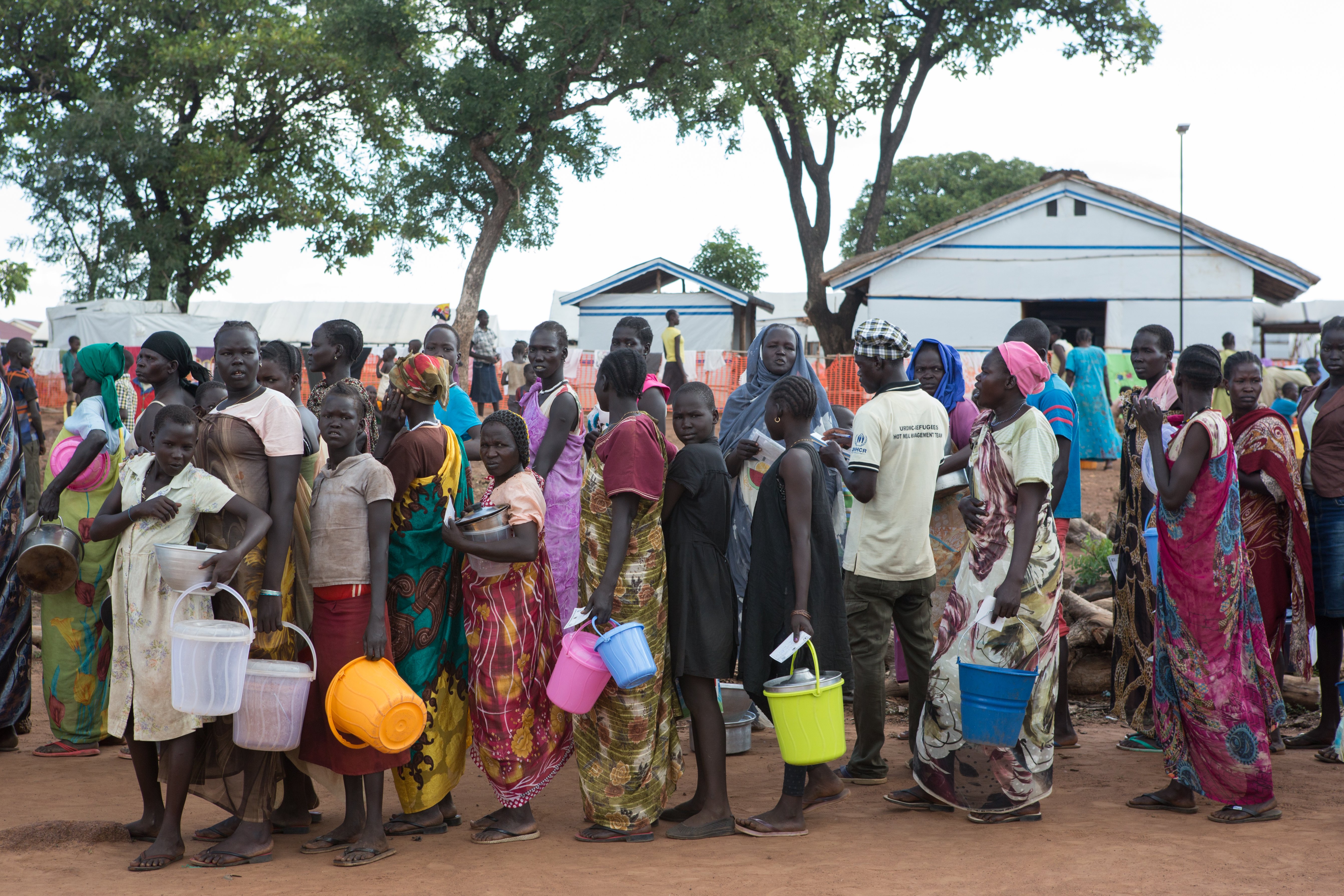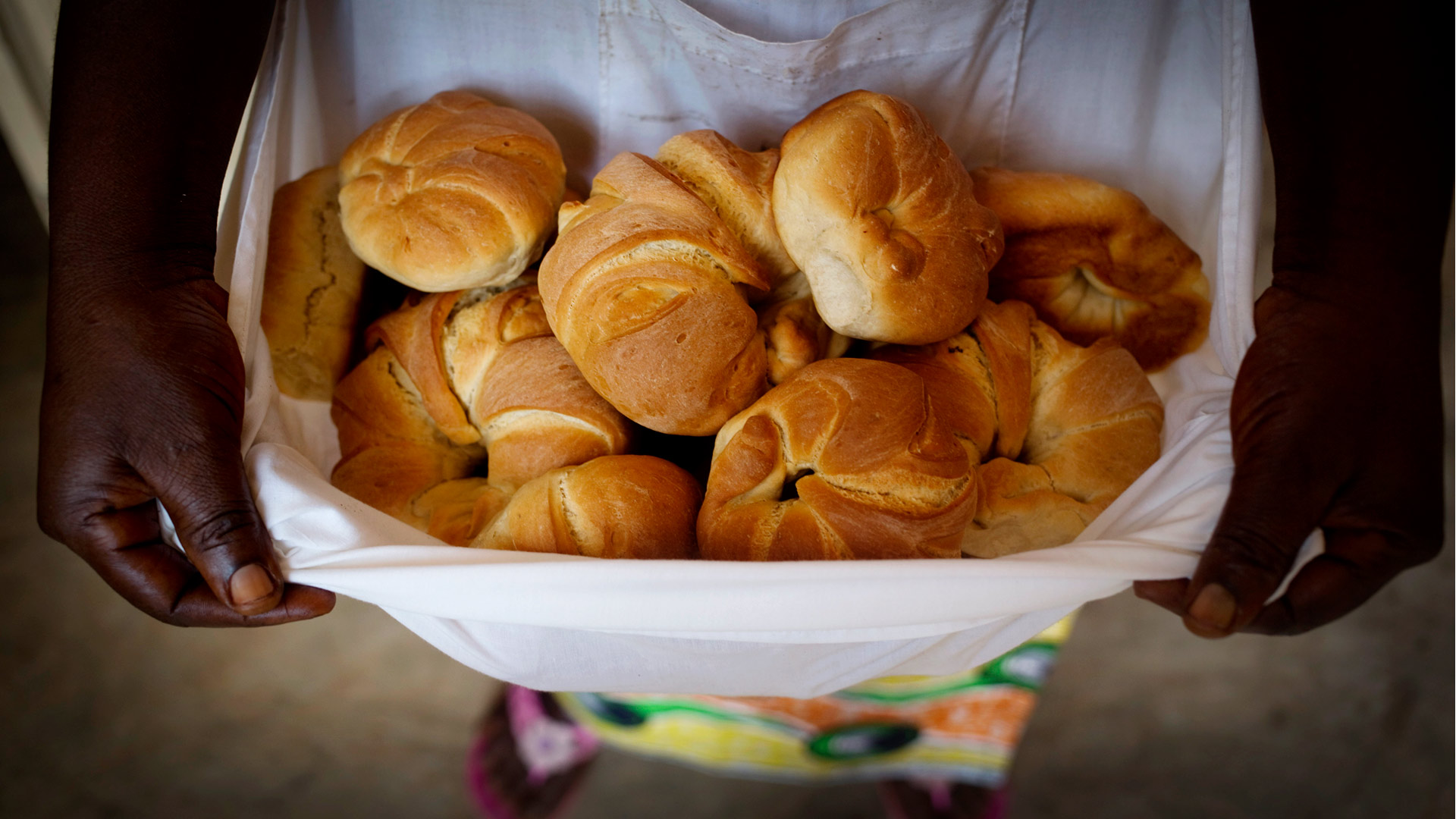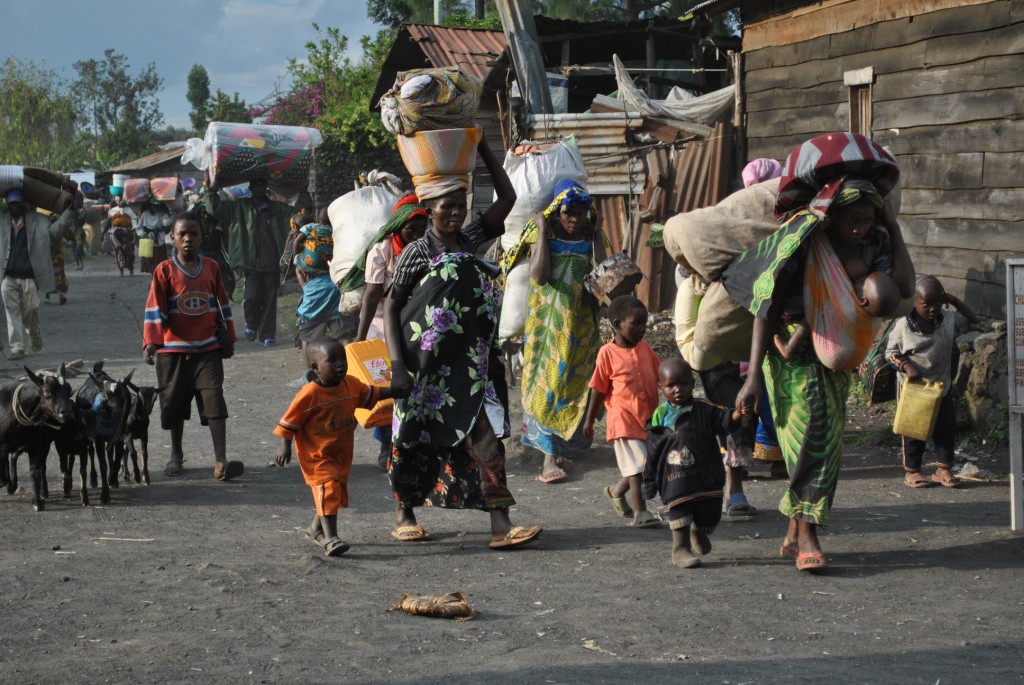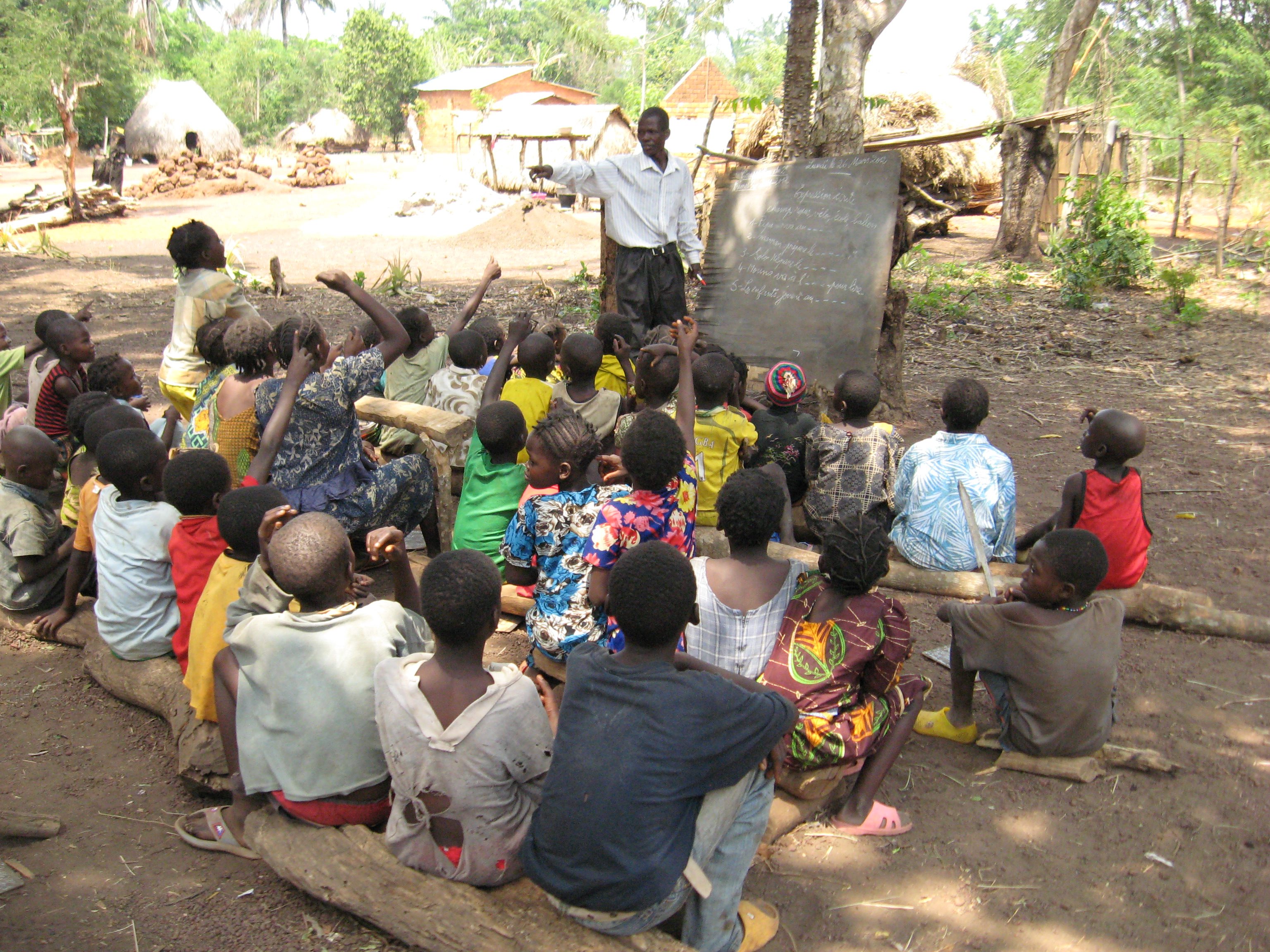UNHCR visits civilians in South Sudan displaced by Lord's Resistance Army
UNHCR visits civilians in South Sudan displaced by Lord's Resistance Army
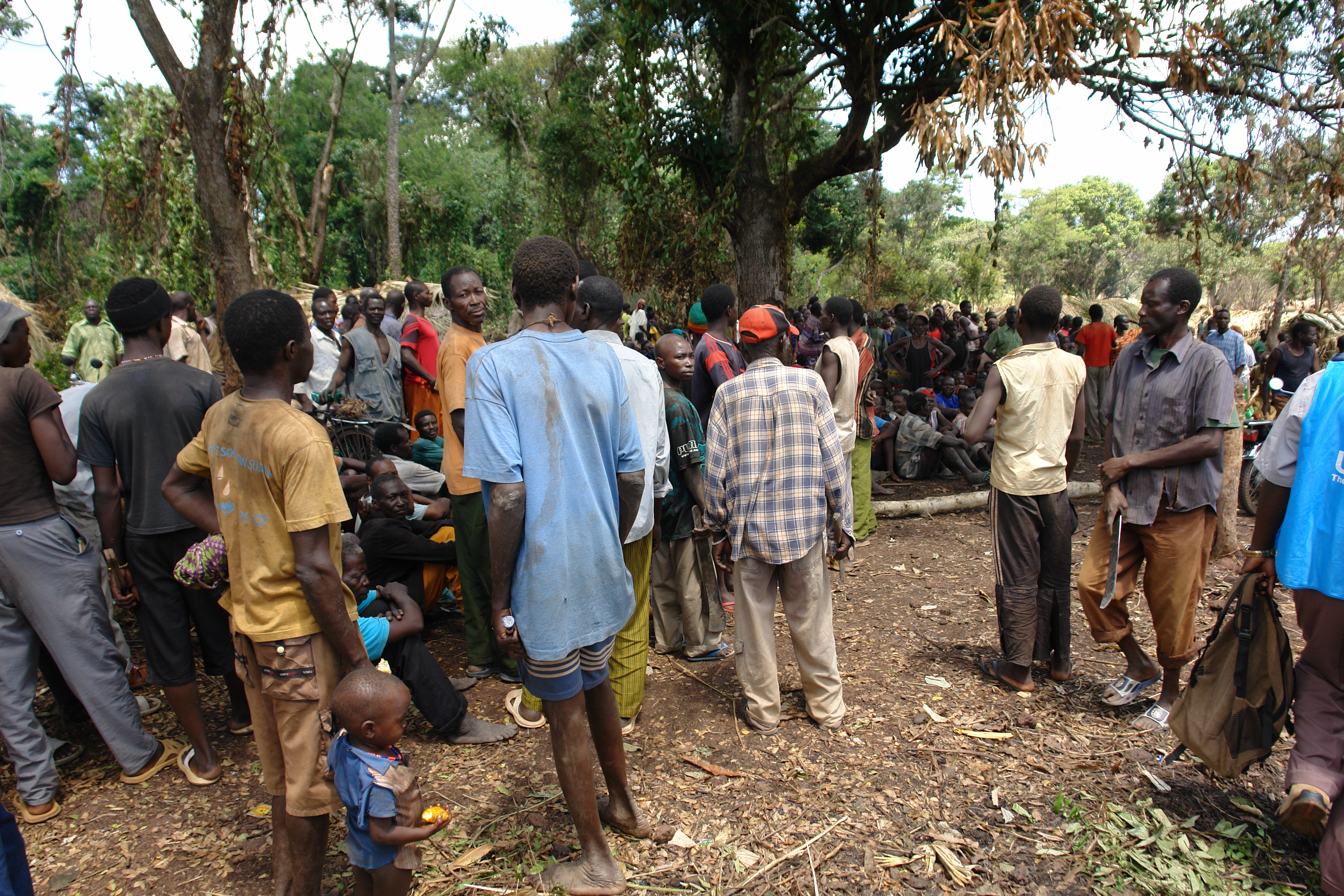
JUBA, Sudan, July 27 (UNHCR) - The UN refugee agency and its partners face a challenge helping refugees and internally displaced Sudanese in a border area of South Sudan where hundreds have been fleeing attacks this month by the rebel Lord's Resistance Army (LRA).
Aside from coping with the recent influx of people to Ezo camp bordering the Democratic Republic of the Congo and to Source Yuba camp bordering the Central African Republic (CAR) - both in South Sudan's Western Equatoria state - UNHCR will also find it more difficult to operate when the rainy season starts in August.
A joint team from UNHCR, the World Food Programme, the International Organization for Migration, World Vision and the International Medical Corps visited Ezo and Source Yubu last week to assess the security and aid needs of the residents, including refugees from the Democratic Republic of the Congo (DRC) and the Central African Republic. Since the start of July, more than 1,900 refugees have crossed into Western Equatoria, joining thousands more displaced since last year.
The team went first to Ezo and met refugees and internally displaced people to talk about their concerns and needs. They learned that fighters from the LRA, a rebel group from Uganda that has caused displacement in CAR, DRC and South Sudan over the past year, attacked Ezo on July 18, causing panic and chaos.
The UNHCR team established that the refugee settlement had not been targeted in the evening attack, but the eruption of gunfire and artillery fire had panicked the refugees and internally displaced people (IDP). A displaced Sudanese girl was reportedly abducted by the LRA from a nearby IDP camp.
"There was gunfire everywhere, then artillery opened up as the [Sudanese] military took action. Everyone took off running . . . everyone was scared," said Pastor Filimon, a Congolese refugee. "Many people had cuts and bruises from running and one boy injured his hand badly when he fell trying to flee."
The team then journeyed to Source Yubu, north of Ezo, along a road that skirts the South Sudan-CAR border. They met refugees from across the border as well as Sudanese forced to flee their homes to escape incursions by the LRA. There are some 1,000 refugees and 2,000 IDPs in Source Yubu.
Simon Njeraze fled into the bush on June 27 with his family and other members of the Bariguna community to escape the LRA. Five villagers abducted by the LRA at the time managed to escape and rejoin their families in Source Yubu, but an unknown number of people are still missing.
Despite the volatile situation, the forcibly displaced communities at both Ezo and Source Yuba expressed their strong desire not to relocate at this time - and with the rainy season approaching, moving them would be difficult until the end of the year. The authorities have pledged to ensure security, while UNHCR will continue to monitor the situation and provide aid.
"We are tired of moving and we prefer to stay here. But we are suffering from diarrhoea, malaria, filariasis [a parasitic tropical disease]," said Njeraze. UNHCR and partner agencies will continue to help them on site with the close cooperation of the governments of South Sudan and Western Equatoria.
UNHCR assists more than 21,000 refugees in South Sudan, mainly from the DRC but also from Ethiopia and the Central African Republic. Since the signing of a peace agreement in South Sudan in 2005, almost 330,000 Sudanese refugees have returned home from neighbouring countries, including CAR and DRC. About half have returned with UNHCR help.
By Taylor Garrett in Juba, Sudan

